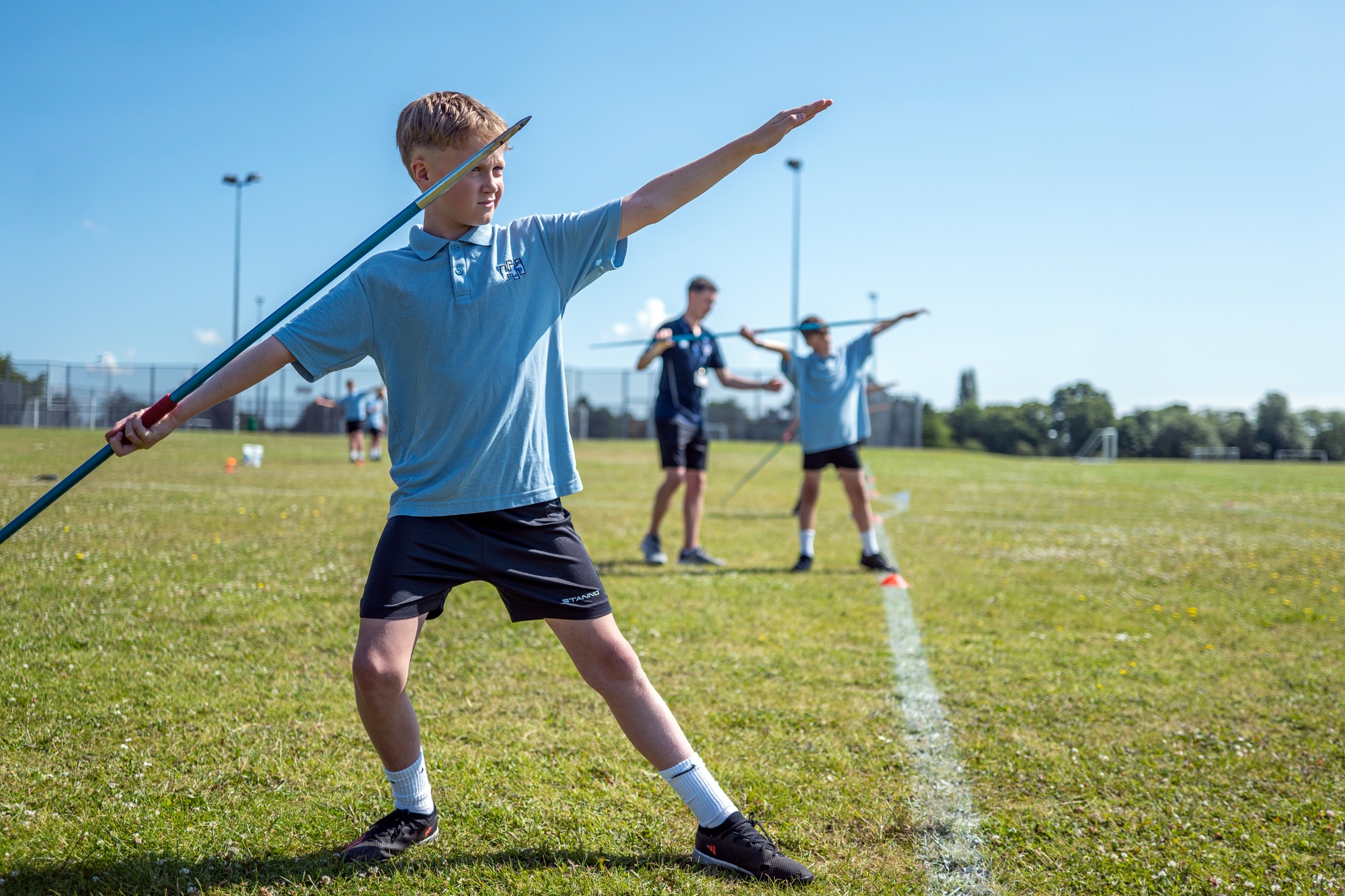Physical Education
PE Vision Statement
Our Physical Education vision is to inspire every student to embrace a lifelong commitment to health, fitness, and well-being through a dynamic and inclusive PE curriculum. We believe that PE is essential for developing not only physical skills but also social, emotional, and cognitive abilities, contributing to the overall growth and success of our students.
Why Physical Education is Important:
- Health & Fitness: Promote a balanced, healthy lifestyle, to help improve students’ overall physical fitness.
- Well-being: Participating in PE enhances students’ mental health, reduces stress, and boosts confidence, self-esteem & mood.
- Life Skills: Students learn about teamwork, leadership, perseverance, & discipline throughout all aspects of the curriculum.
What our Physical Education Curriculum Should Achieve:
- Skill Development: Equip students with fundamental motor skills and sport-specific techniques, fostering personal fitness and encouraging goal setting for improvement.
- Health Education: Integrate lessons on mental health, and the benefits of an active lifestyle. This will empower students with the knowledge to make healthy choices.
- Lifelong Engagement: Instil a passion for physical activity that persists beyond school, giving them the tools and experiences to engage in various sports and fitness activities.
- Inclusivity and Participation: Ensure every student feels valued and included, regardless of ability or background.
- Character & Social Skills: Promote values such as teamwork, leadership, and fair play.
By realising this vision, our PE curriculum will cultivate well-rounded individuals who excel physically, mentally, and socially, ready to thrive in all aspects of their lives.

Useful Links
- BBC Bitesize
- OCR GCSE PE Revision
- OCR A-Level PE Revision
- Association for PE
- Active Norfolk
- West Norwich and Dereham School Sport Partnership
- HHS PE Twitter page
Examination Courses
Key Stage 4 - OCR GCSE PE
Theory Specification - https://ocr.org.uk/images/234822-specification-accredited-gcse-physical-education-j587.pdf
Practical Specification - https://ocr.org.uk/images/234827-guide-to-non-exam-assessment.pdf
OCR GCSE PE
Students choosing to study PE at GCSE level in Year 10 and 11 will learn about a variety of theoretical topics and develop their ability in several different practical activities.
The course is divided as follows:
Component 1 (30%): Physical factors affecting performance – Skeletal System, Joints and Types of Movement, Muscular System, Movement Analysis, Respiratory System, Cardiovascular System, Short-Term and Long-Term Effects of Exercise, Components of Fitness, Principles of Training, Warm Up and Cool Down and Prevention of Injury
Component 2 (30%): Socio-cultural issues and sports psychology – Characteristics of Skill, Skill Classification, Goal Setting, Mental Preparation, Types of Guidance, Types of Feedback, Participation in Physical Activity, Commercialisation of Sport, Ethics/Drugs/Violence in Sport, Health, Fitness and Well-Being and Diet and Nutrition
Component 3 (40%): Performance with Physical Education
Practical Assessment – Students are assessed in one team activity and one individual activity plus one further team or individual activity. In Year 10, the focus is on narrowing down which activities students are likely to be assessed in, before specialising in those activities during Year 11.
Analysis and Evaluation of Performance (AEP) – Students complete a written piece of controlled assessment based on their performance in a chosen sport. This includes analysing their own strengths and weaknesses, evaluating personal fitness levels, key skills needed to be successful and an action plan to improve upon a particular skill.
Students are taught both theory and practical lessons throughout the two years with the two theory exams sat at the end of Year 11 and a practical moderation taking place just before the main exam period in Year 11. The AEP task is completed during lesson time at regular intervals during the course.
Key Stage 5 - OCR A-Level PE
OCR A-Level PE
Theory Specification - https://www.ocr.org.uk/Images/234833-specification-accredited-a-level-gce-physical-education-h555.pdf
Practical Specification - https://www.ocr.org.uk/Images/234840-guide-to-non-exam-assessment.pdf
Students choosing to study PE at A-Level are taught topics across the following areas:
Unit 1 (30%): Physiological factors affecting sport – Anatomy and Physiology, Exercise Physiology and Biomechanics
Unit 2 (20%): Psychological factors affecting performance – Skill Acquisition and Sports Psychology
Unit 3 (20%): Socio-cultural issues in physical activity and sport - Sport & Society and Contemporary issues in Physical Activity
Unit 4 (30%): Performance in PE - Practical or Coaching Performance (in one sport) and an Evaluation and Analysis of Performance for Improvement (EAPI) task
All theory topics are taught during timetabled lessons by a different teacher who specialises in that particular area. Students are expected to practice their practical or coaching performance in a chosen activity outside of lesson time which is then assessed towards the end of Year 13.
The EAPI task is introduced in Year 12 and then assessed towards the end of Year 13. For this, students observe a practical performance in their chosen activity before orally detailing their analysis of the strengths and weaknesses of the performer and producing an action plan to develop a particular skill. Throughout the task, students are expected to make relevant links to different theory topics covered in Units 1-3.


